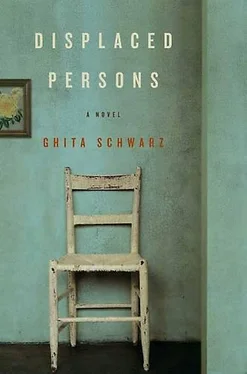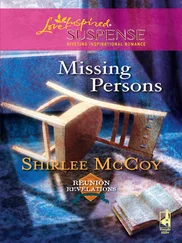Don’t give me away, said Berel. Under the metal table he crossed his feet: a good hand.
Our mother is resting, Sima said, to no one in particular. She is weak.
Sshh! Sima! said Berel.
Our mother, chuckled a man at the table. There it is, Berele. Still tied to your mammele. She loves you to play cards, mm?
A man does not let his wife stop his leisure, said Berel. He put down his hand: three queens, a row of spades, three kings. Aha! You see?
Sima watched him grinning, happy.
Now have your mother tell me our luck hasn’t changed, Berel chuckled. Hmm, Simale? If this doesn’t tell her, what does?
It’s the boy teacher, a man said. Sima turned around. Chaim walked with a quick thin step in spite of the heat, dressed in a slim blue suit. He looked different outside of the classroom, bigger and more sure. She backed into her father’s arms, flushed with sudden shyness. He came toward them.
Pan Makower, he said. I would like to ask you a favor.
BEREL HAD NOT FOUND another opportunity for office work, but now that he had an assignment in the camp kitchens, he could convince Dvora that he had the luxury to sing on the Sabbath. She did not give too great an argument. Perhaps she was relieved that he had accepted a bit of religion, this late in life. He sang at the large Sabbath services at the Roundhouse and once performed Yiddish folk tunes at the close of a short concert in the camp.
He came into his family space in the barracks to tell Dvora of Chaim’s offer. A Jewish wedding outside the camp confines. A man who wanted a traditional service, a cantor’s voice, of course Berel was not officially a cantor, but who worried about such things now? He would first discuss it with them at the Roundhouse, and of course all three of them would go. Unless Dvora felt too ill, and he would just take Sima-
Dvora interrupted, sitting up, her forehead damp. Who gets married? she asked. The man and woman who live there?
No, said Berel. I believe it is the man’s sister.
Ah, so this Mandl is already married to the woman.
Perhaps, nodded Berel. But he had asked Chaim the same question, and the boy had continued talking about the sister. Yes, I believe so.
Dvora blinked. He knew what the blink meant: some kind of scandal there. But she would measure in one hand a bit of scandal and in the other the opportunity to see a real home. Berel knew which hand would come out the winner.
I must change my shirt, said Berel. We will go now, I suppose. It’s a long way.
A long way? We will have someone drive us! Dvora looked offended. We won’t walk there, like peasants. If we are a cantor’s family, we are a cantor’s family.
I should go with the boy to the Roundhouse first. They brought the contract with them.
Can I come? Sima grasped at Berel’s sleeve. I want to go to the Roundhouse again.
Berel frowned. No, you stay here with your mother.
Bring her, said Dvora. It will make an impression. And I need time to get dressed.
Sima wiped her mother’s face with a towel.
Good girl, said Dvora. But don’t let your father leave without me.
A SAD ARMY THEY were, Pavel Mandl and the pink-faced man who wished to be his brother-in-law, his thin friend Marek, and Chaim, the boy teacher’s assistant from Sima’s class. Dressed neatly, hair slick, eyes haggard. Impressive, Berel thought, only in their desperation. In the enormous chairs of Yidl Sheinbaum’s office at the DP camp, their bodies appeared small, creased, and hidden.
Berel had been here before. Next to the offices Yidl and his new wife, Tsipora, had a grand apartment, filled with luxurious items captured from the local Germans. Berel had brought Dvora and Sima there the first time he was invited to sing at a wedding-so many of the refugees married under Yidl’s canopy, no rabbi present-he had been overwhelmed by his first visit, the grandness of the place when compared with the little area of the barracks he lived in, thinly separated by a sheet from the other tiny families. He had been overwhelmed but somewhat distanced too. Yidl did not seem to Berel to be of so high a background, and the elegant silvers and carpets, the large rooms, a separate spot for dining, aroused in him both envy and disdain. Dvora had disagreed. At least there are some Jews, she said, who live as well as the Germans who murdered us and still have comfort!
But today the fine offices did not seem so full as they had before. Yidl Sheinbaum had received Berel and Simale with formality and calm. In public he was emotional, forceful, but here in his own territory his triangular face took on the aspect of a quiet bird, a sharp face atop a short, stocky body.
You have been asked to perform a good deed, Sheinbaum said.
Berel felt his mouth stiffen, suppressing a laugh.
Just a little singing, he said.
Ah no, Reb Makower. Much more than a little singing. Perhaps our friend-Sheinbaum gestured at Chaim-did not explain fully. You are to perform what perhaps you have not performed since before the war, a wedding.
Since before the-
I know, Sheinbaum interrupted. How careful you have wanted to be about the ritual, Rebbe. I know! And such is the problem we face today. An American rabbi in the same position, yes, but without, shall we say, the authority you have to believe your fellow remnants.
I don’t think I can perf-
Listen, said Sheinbaum. I know it has been far too long since you recited the prayers. A prayer book we have for you. And, of course, we have a British captain on his way to sign the necessary paperwork, attesting to your status.
Chaim spoke. That way we think we can convince the American to sign at least as a witness. In part it will be an American wedding.
Berel looked at the men.
My sister, said Pavel Mandl, his voice rasping and quiet. My sister. It is all I want in the world, to have her married to a Jewish man in a Jewish ceremony, by a rabbi, with a contract. It is not war, when anyone can do a ceremony. I want a rabbi. To have her have a Jewish child, just like your little one, Rebbe.
Berel did not dare look at Sima. But he knew she would keep quiet. He could feel her standing still next to him, her head a hand’s breadth from his thigh.
I will do anything. I have stones, Pavel whispered. I will sell anything.
Berel saw the thin man, Marek, look quickly at Pavel, then turn away. But Sheinbaum interrupted again. Don’t be silly. You want your sister to have a Jewish wedding, she will have a Jewish wedding. And an American one too. Isn’t it so, Reb Makower?
Berel nodded.
Now, a little coffee? We will set out in a few moments.
Sheinbaum’s broad new wife, Tsipora, came in to serve them, and he retreated into the recesses of his apartment to speak on the telephone. After some time he returned with a man in a high-level British uniform.
My friends, Sheinbaum announced in Yiddish, his voice low and serious, this is Captain Davies. He is here to solve our problem.
Please, said the captain, in German. How can I help you?
The group looked at Yidl. But Yidl looked right back. He spoke to everyone, even the military attachés, even the diplomats from America, in Yiddish. And German! He made it a point not to speak German. Tsipora said something in a language Berel did not know. French? It was said she had studied medicine in Paris before the war. She leaned over to Pavel and patted him on the shoulder and whispered in his ear, as if she had known him for years, a sister.
Pavel seemed to shrink under her touch. For a moment Berel wondered if he should say something, for suddenly he and his daughter were part of this group, this little gray mass that five minutes before had been strangers to him. But the captain broke the silence.
All this just to show one of you is a rabbi? Here, we’ll put your seal along with mine-these Americans, he shook his head at Yidl. All I need from you, Herr Sheinbaum, is a word. I have seen it for myself. What you tell me is true.
Читать дальше











